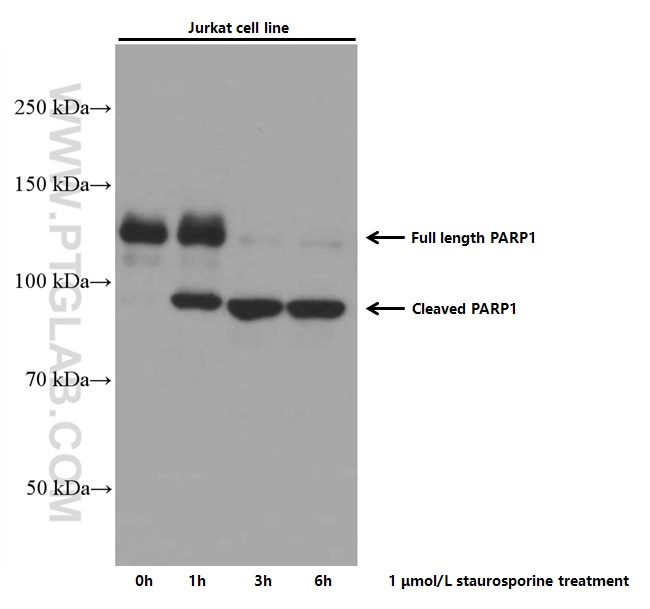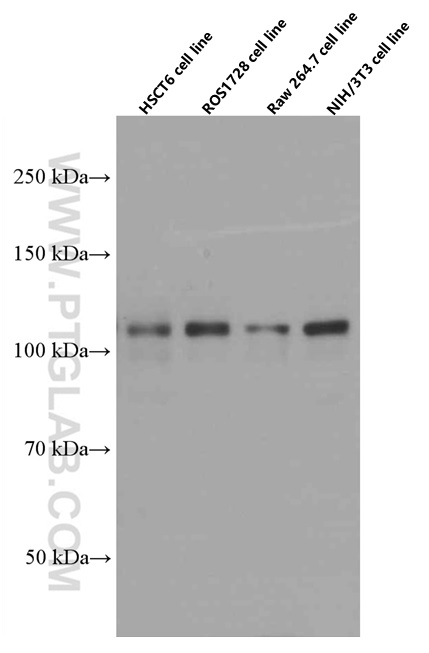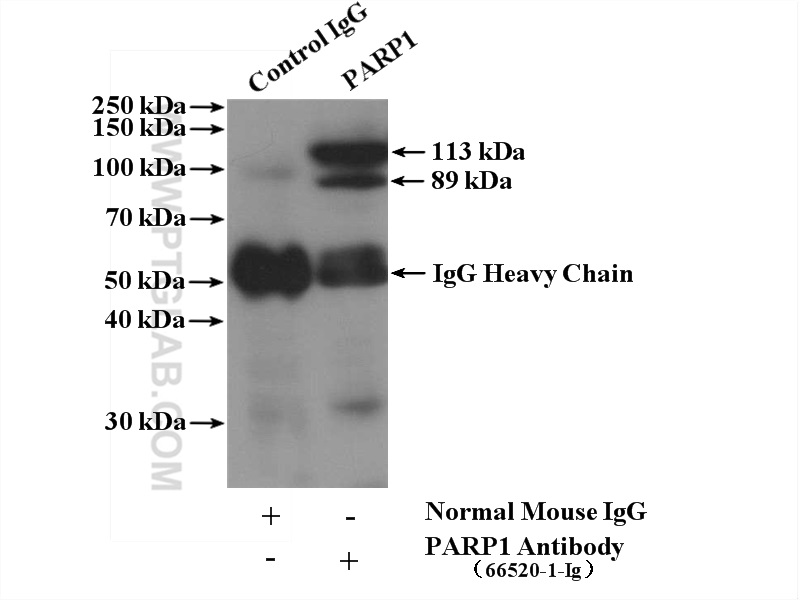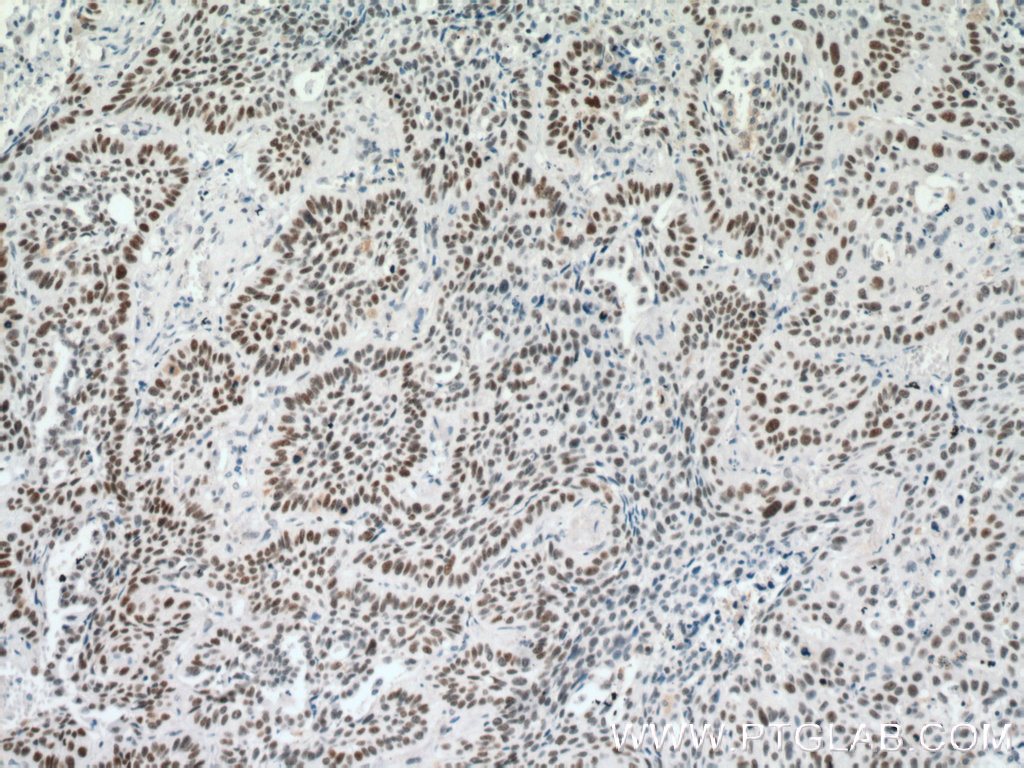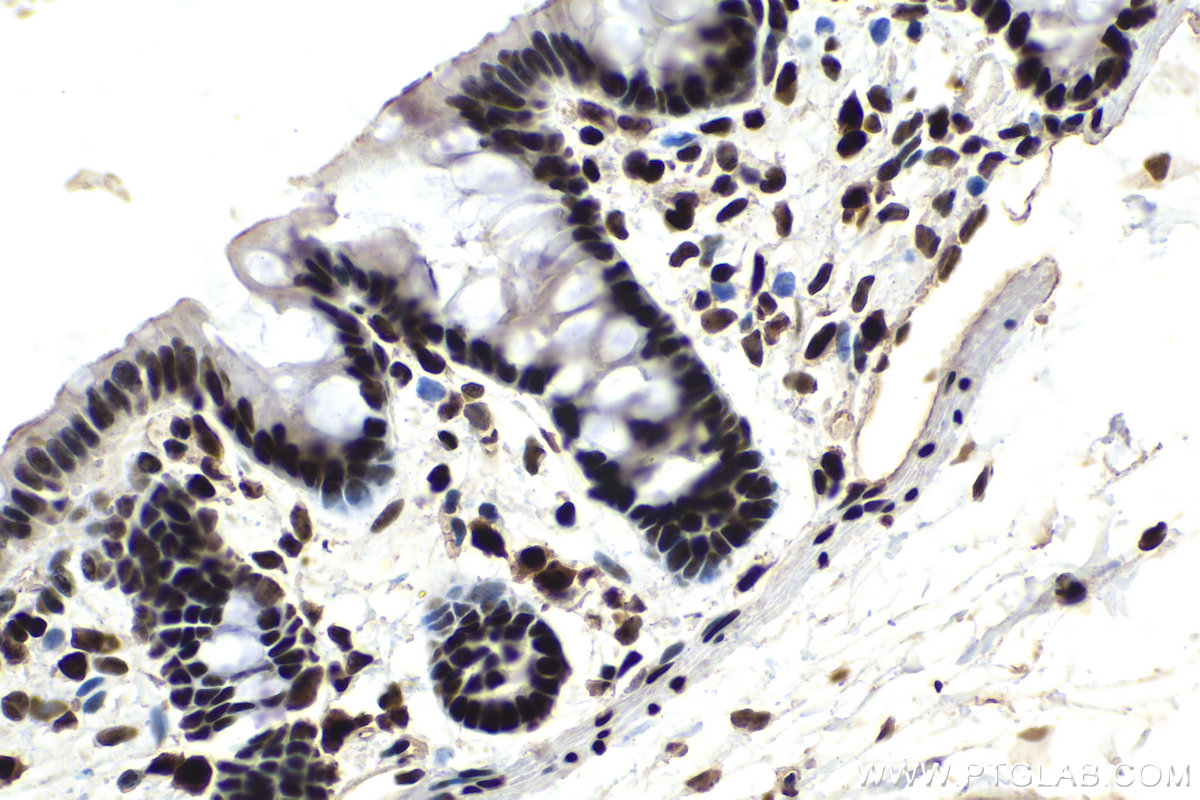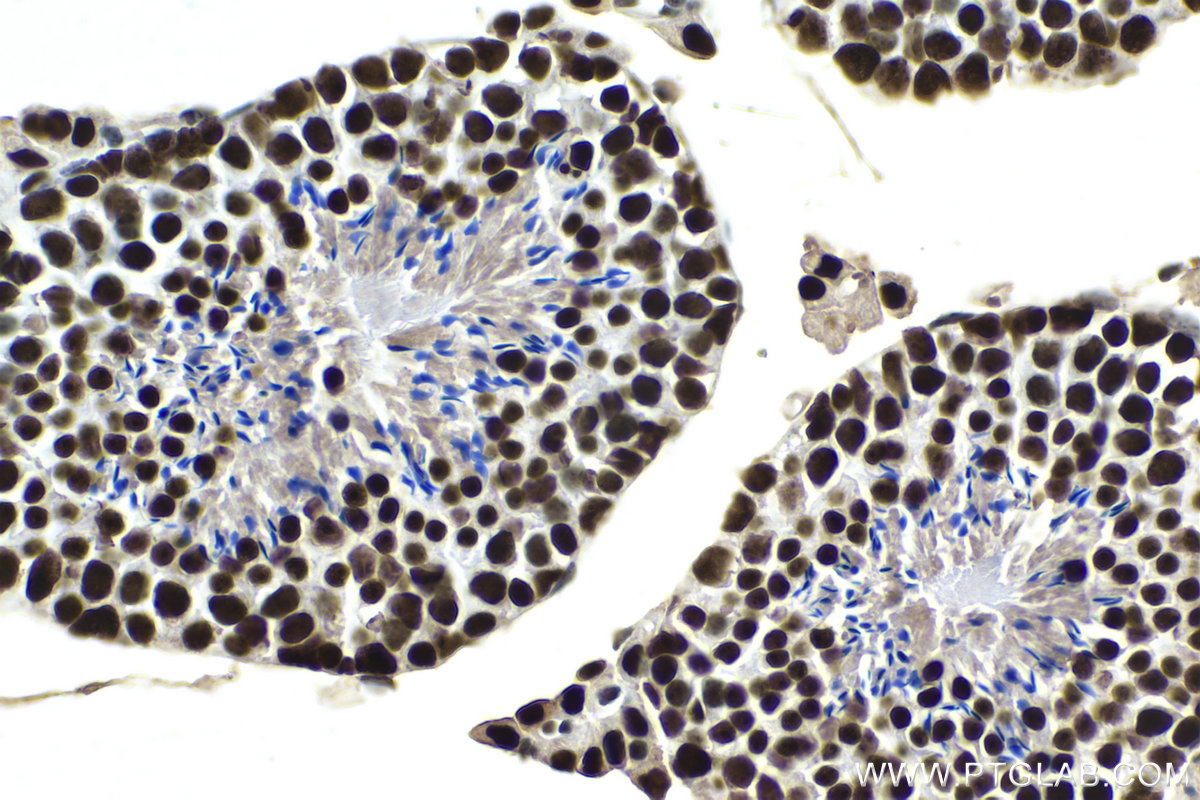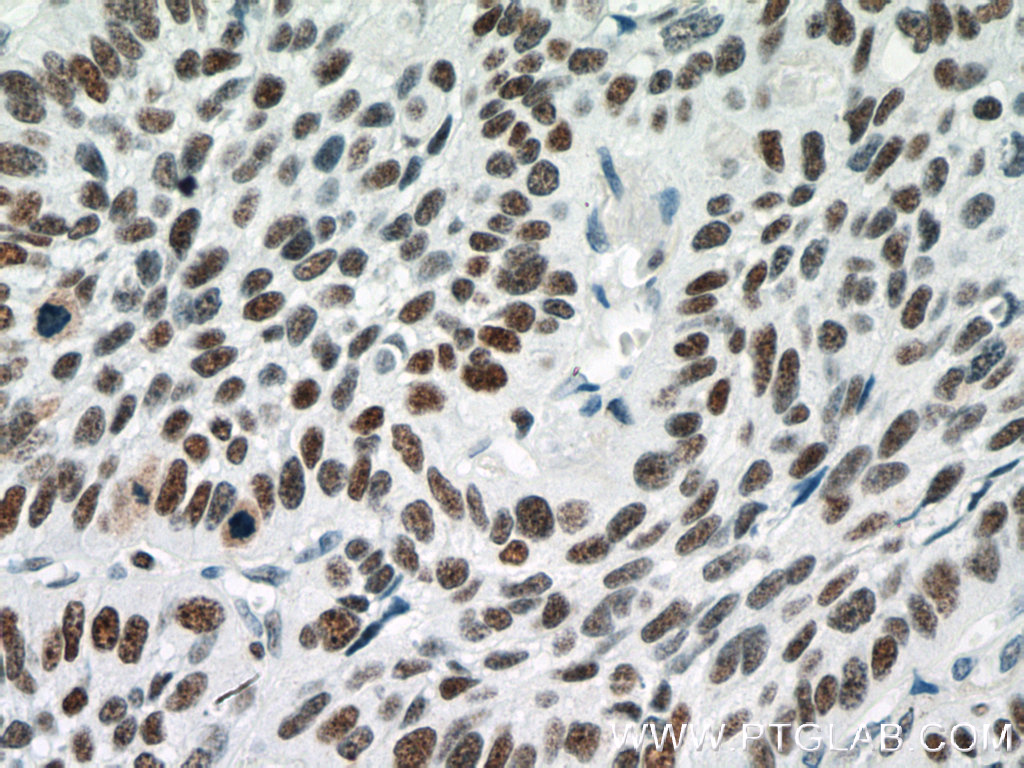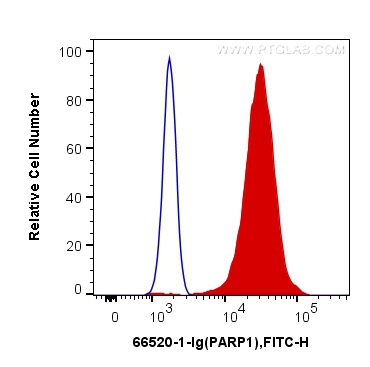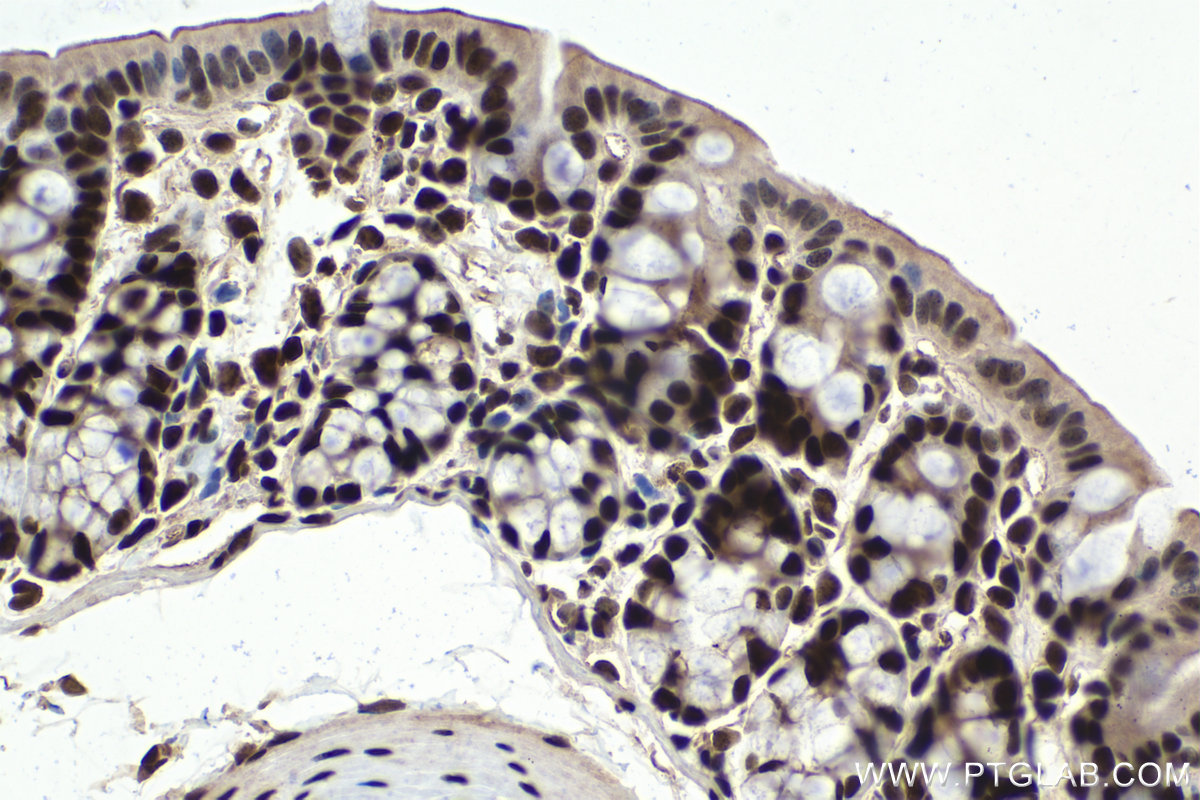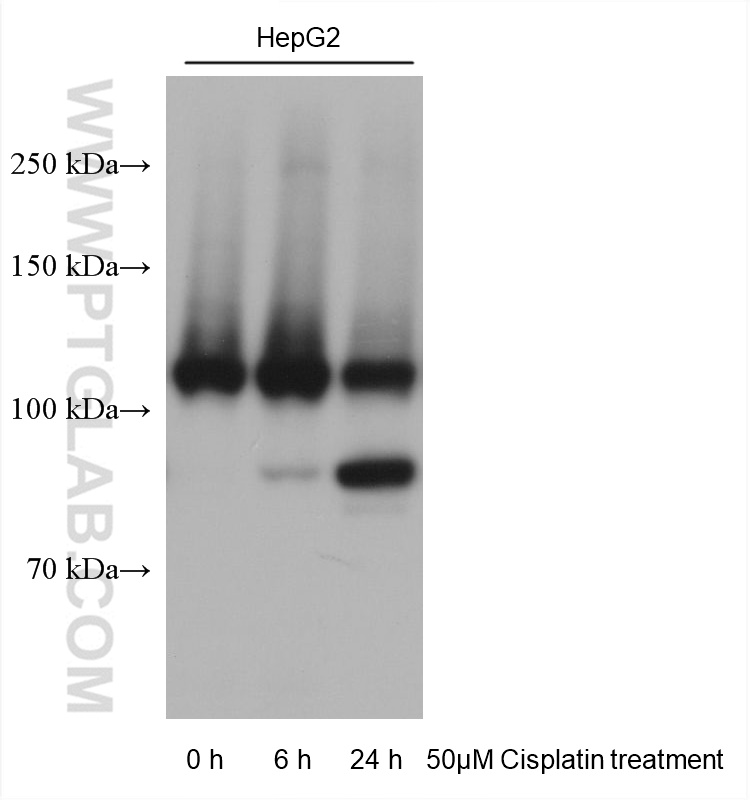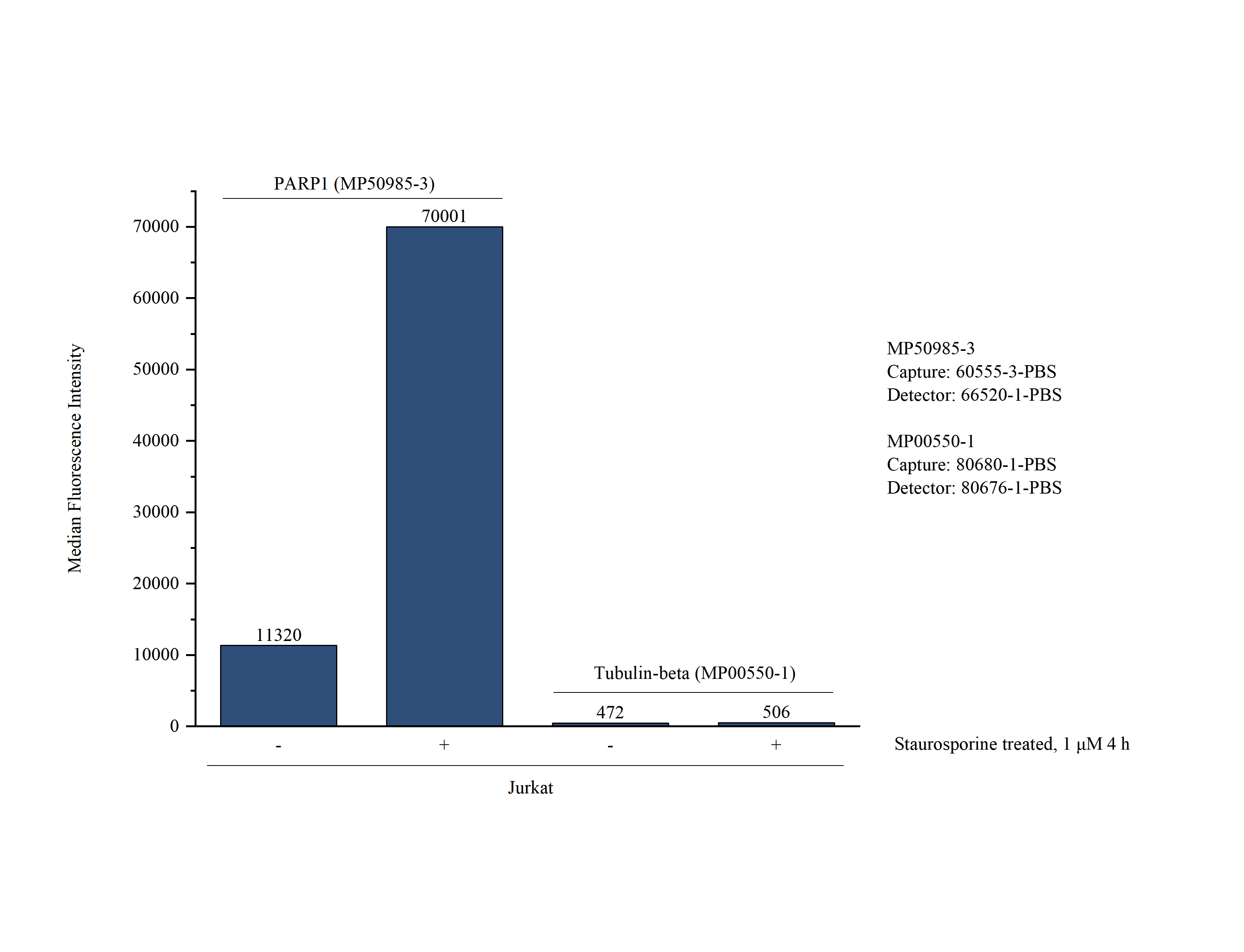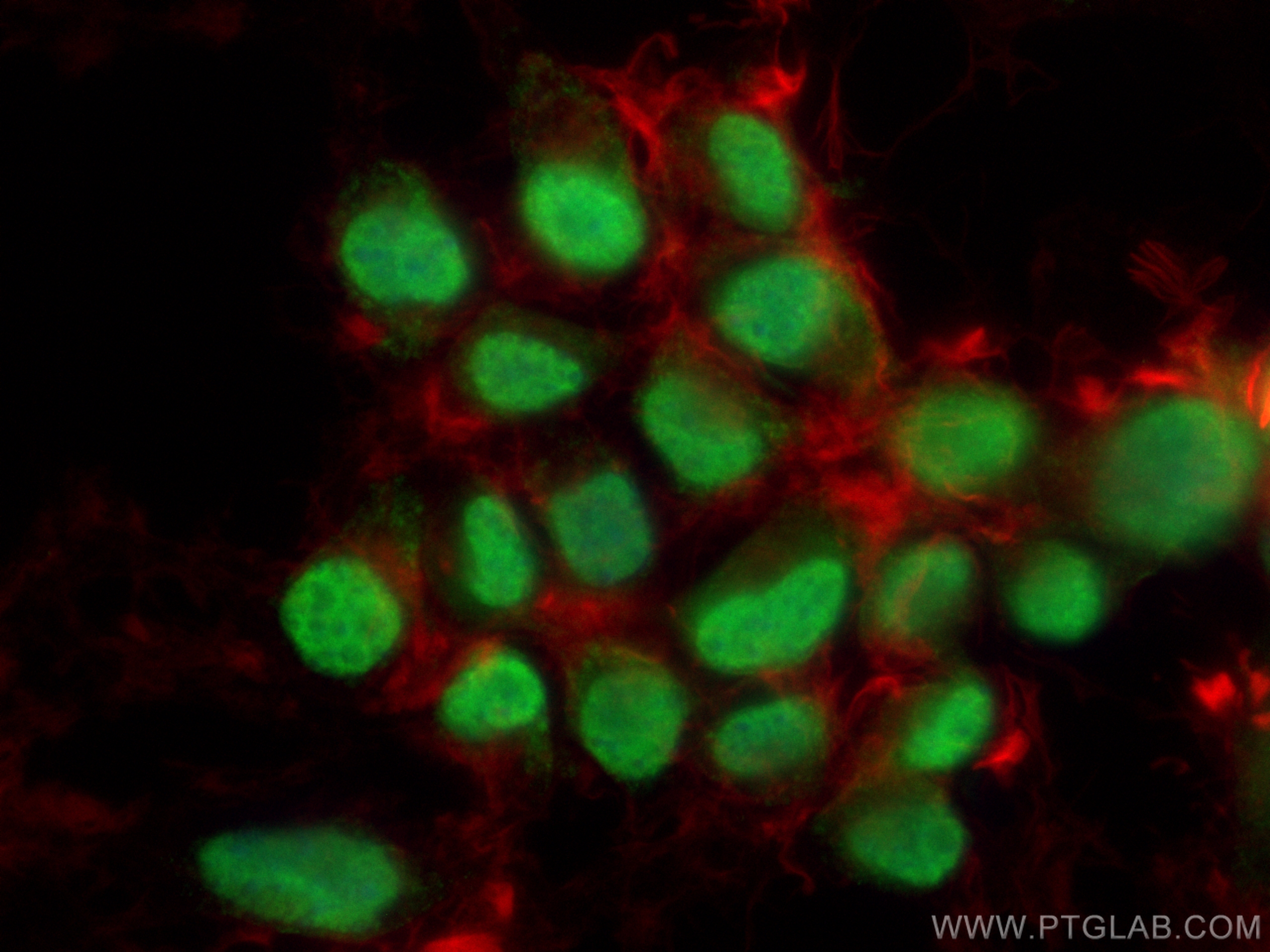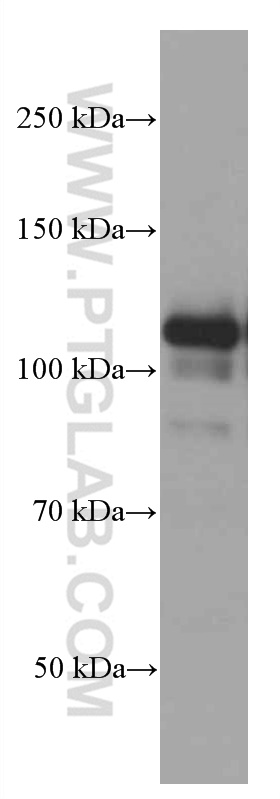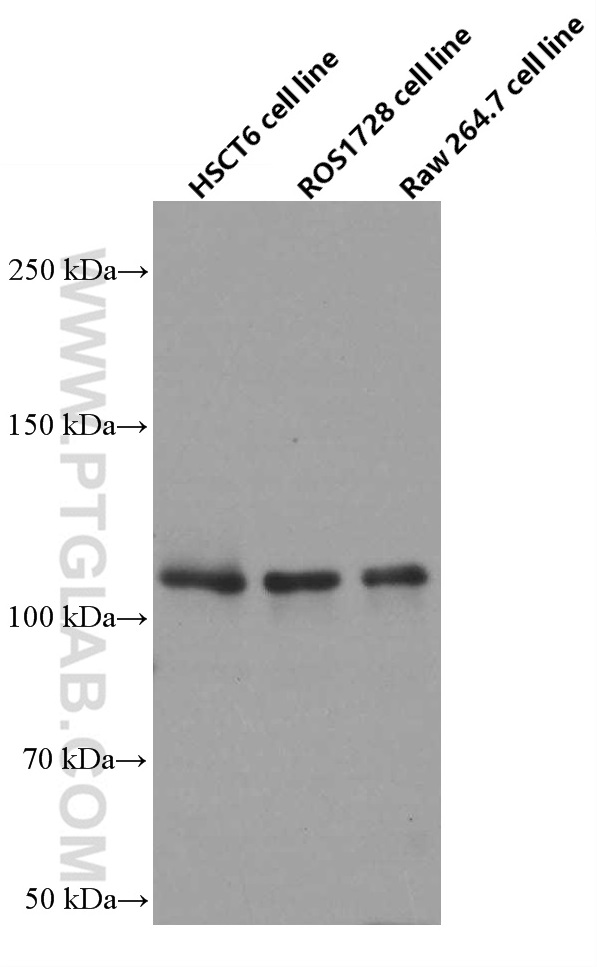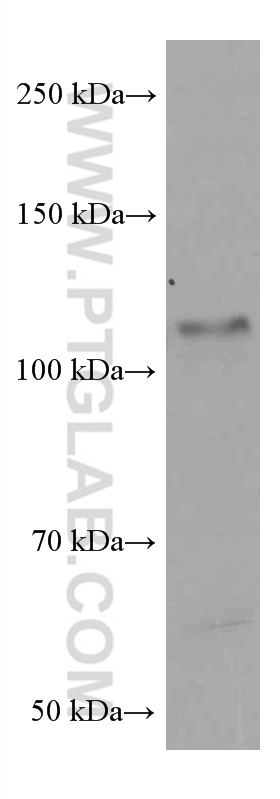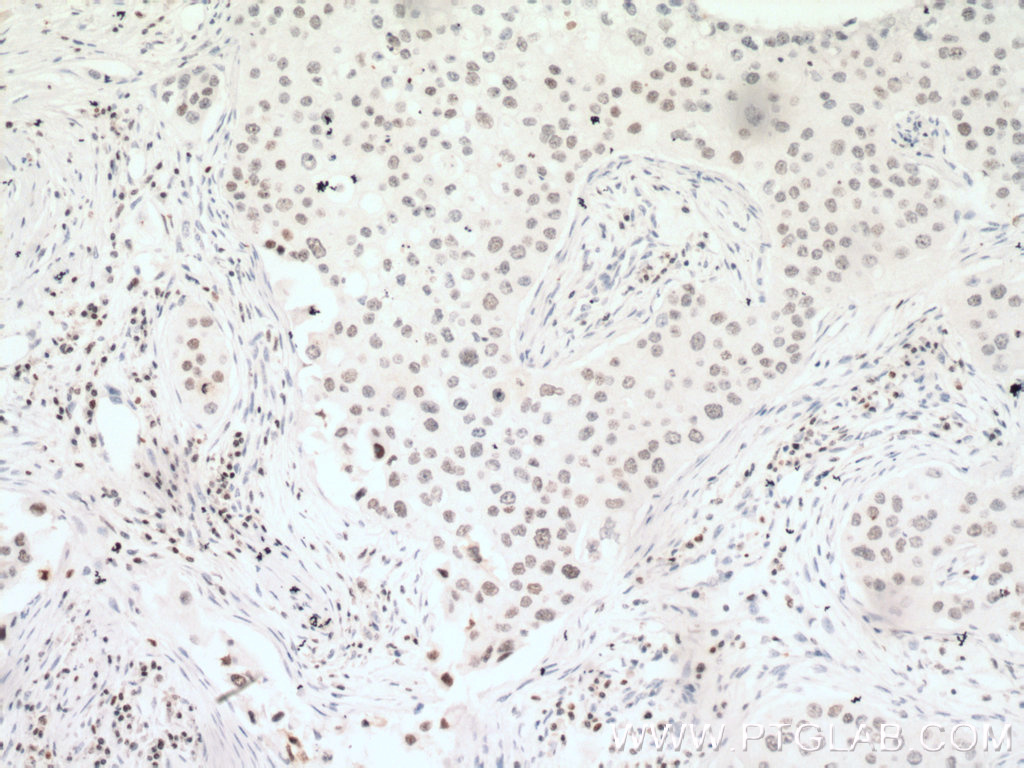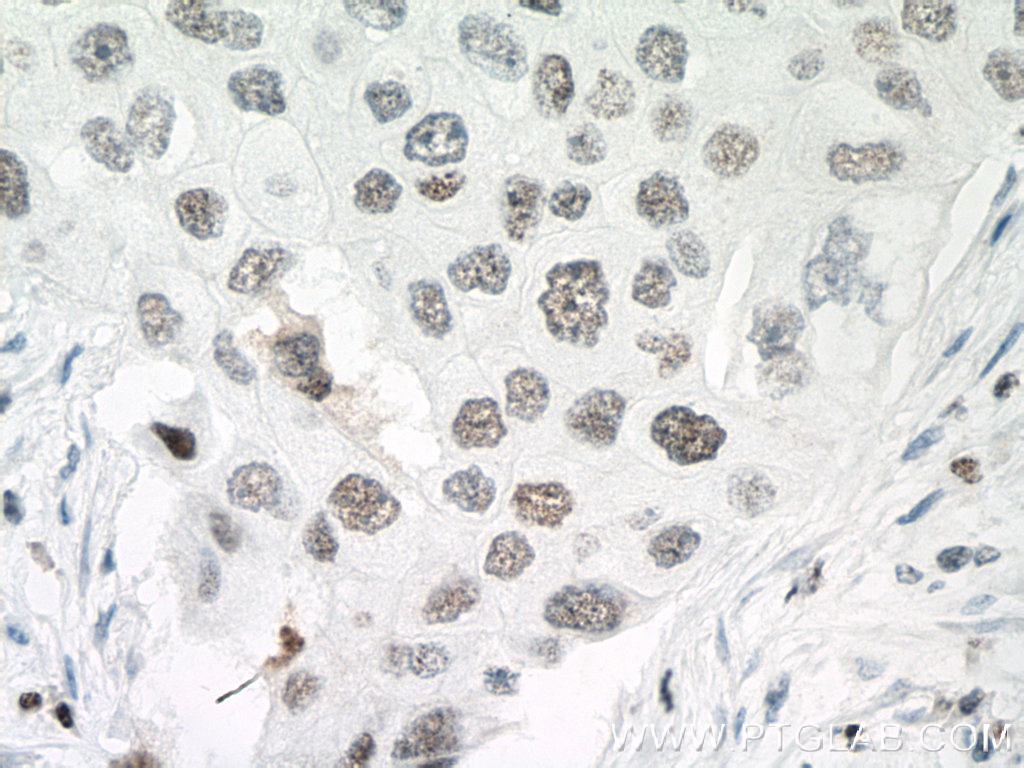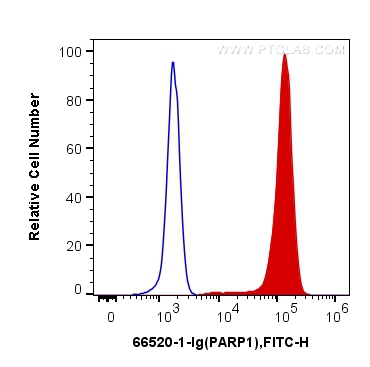验证数据展示
产品信息
66520-1-PBS targets PARP1 as part of a matched antibody pair:
MP50985-1: 66520-1-PBS capture and 60555-2-PBS detection (validated in Cytometric bead array)
MP50985-2: 60555-1-PBS capture and 66520-1-PBS detection (validated in Cytometric bead array)
MP50985-3: 60555-3-PBS capture and 66520-1-PBS detection (validated in Cytometric bead array)
Unconjugated mouse monoclonal antibody pair in PBS only (BSA and azide free) storage buffer at a concentration of 1 mg/mL, ready for conjugation.
This conjugation ready format makes antibodies ideal for use in many applications including: ELISAs, multiplex assays requiring matched pairs, mass cytometry, and multiplex imaging applications.Antibody use should be optimized by the end user for each application and assay.
| 经测试应用 | WB, IHC, IF/ICC, FC (Intra), IP, Indirect ELISA, Sample test Application Description |
| 经测试反应性 | human, mouse, rat |
| 免疫原 |
CatNo: Ag19173 Product name: Recombinant human PARP1 protein Source: e coli.-derived, PET28a Tag: 6*His Domain: 1-327 aa of BC037545 Sequence: MAESSDKLYRVEYAKSGRASCKKCSESIPKDSLRMAIMVQSPMFDGKVPHWYHFSCFWKVGHSIRHPDVEVDGFSELRWDDQQKVKKTAEAGGVTGKGQDGIGSKAEKTLGDFAAEYAKSNRSTCKGCMEKIEKGQVRLSKKMVDPEKPQLGMIDRWYHPGCFVKNREELGFRPEYSASQLKGFSLLATEDKEALKKQLPGVKSEGKRKGDEVDGVDEVAKKKSKKEKDKDSKLEKALKAQNDLIWNIKDELKKVCSTNDLKELLIFNKQQVPSGESAILDRVADGMVFGALLPCEECSGQLVFKSDAYYCTGDVTAWTKCMVKTQT 种属同源性预测 |
| 宿主/亚型 | Mouse / IgG1 |
| 抗体类别 | Monoclonal |
| 产品类型 | Antibody |
| 全称 | poly (ADP-ribose) polymerase 1 |
| 别名 | 1D7D4, ADP-ribosyltransferase diphtheria toxin-like 1, ADPRT, ADPRT 1, ADPRT1 |
| 计算分子量 | 1014 aa, 113 kDa |
| 观测分子量 | 113-116 kDa, 85-89 kDa |
| GenBank蛋白编号 | BC037545 |
| 基因名称 | PARP1 |
| Gene ID (NCBI) | 142 |
| RRID | AB_2881883 |
| 偶联类型 | Unconjugated |
| 形式 | Liquid |
| 纯化方式 | Protein G purification |
| UNIPROT ID | P09874 |
| 储存缓冲液 | PBS only, pH 7.3. |
| 储存条件 | Store at -80°C. The product is shipped with ice packs. Upon receipt, store it immediately at -80°C |
背景介绍
PARP1 (poly(ADP-ribose) polymerase 1) is a nuclear enzyme catalyzing the poly(ADP-ribosyl)ation of many key proteins in vivo. The normal function of PARP1 is the routine repair of DNA damage. Activated by DNA strand breaks, the PARP1 is cleaved into an 85 to 89-kDa COOH-terminal fragment and a 24-kDa NH2-terminal peptide by caspases during the apoptotic process. The appearance of PARP fragments is commonly considered an important biomarker of apoptosis. In addition to caspases, other proteases like calpains, cathepsins, granzymes, and matrix metalloproteinases (MMPs) have also been reported to cleave PARP1 and give rise to fragments ranging from 42-89-kDa. This antibody was generated against the N-terminal region of human PARP1 and it recognizes the full-length as well as the cleavage of the PARP1.

